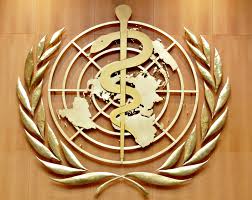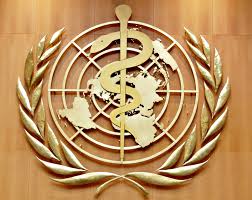
As the World Health Organization launched a global response unit against the new medical emergency caused by Zika virus, the WHO warned that the Zika virus linked to a microcephaly outbreak in Latin America could spread to Africa and Asia, with the world's highest birth rates.
An international public health emergency was declared by WHO caused by Zika's link to thousands of recent birth defects in Brazil.
"We've now set up a global response unit which brings together all people across WHO, in headquarters, in the regions, to deal with a formal response using all the lessons we've learned from the Ebola crisis," said Anthony Costello, WHO director for maternal, child and adolescent health.
"The reason it's a global concern is that we are worried that this could also spread back to other areas of the world where the population may not be immune," he told a news conference in Geneva on Tuesday.
"And we know that the mosquitos that carry Zika virus - if that association is confirmed - are present ... through Africa, parts of southern Europe and many parts of Asia, particularly South Asia..." he added.
Apart from mustering experts to work on a definition of microcephaly including a standardized measurement of baby heads, the WHO is also drawing up "good guidelines" for pregnant women.
"We believe the association is guilty until proven innocent," he said, referring to the connection drawn in Brazil between the Zika virus and microcephaly, a condition where babies are born with abnormally small heads.
Costello, a pediatrician, said that in order to curb the virus, "mass community engagement" in areas with the mosquitos and their breeding grounds, and rapid development of diagnostic tools are essential as a vaccine may be years away.
In May last year, an outbreak of the Zika virus, transmitted by mosquitoes, was detected in Brazil and the virus has quickly spread to more than 20 countries in Latin America, including two new ones announced Monday: Costa Rica and Jamaica.
The understanding of the connection between the Zika virus and microcephaly was hazy, said Dr. Margaret Chan, the director general of the W.H.O in Geneva. And throughout the Americas this uncertainty has placed “a heavy burden” on pregnant women and their families. The health agency would be helped to coordinate the many efforts to get desperately needed answers by the emergency designation, she said.
Pregnant women were being researched for the effects of Zika virus in Brazil, Colombia and El Salvador.
“The evidence is growing and it’s getting strong. So I accepted, even on microcephaly alone, that it is sufficient to call an emergency. We need a coordinated international response,” Dr. Chan said.
While the American health officials had been advising pregnant women about not travelling to affected countries, the WHO stopped short of making any such advice.
Identified in 1947 in Uganda, Zika virus has for years lived mostly in monkeys. On humans it was known to have a mild feverish effect. However cases began increasing drastically in last May in Brazil. By the end of the year, WHO estimates that four million people could be infected.
(Source:www.reuters.com & www.nytimes.com)
An international public health emergency was declared by WHO caused by Zika's link to thousands of recent birth defects in Brazil.
"We've now set up a global response unit which brings together all people across WHO, in headquarters, in the regions, to deal with a formal response using all the lessons we've learned from the Ebola crisis," said Anthony Costello, WHO director for maternal, child and adolescent health.
"The reason it's a global concern is that we are worried that this could also spread back to other areas of the world where the population may not be immune," he told a news conference in Geneva on Tuesday.
"And we know that the mosquitos that carry Zika virus - if that association is confirmed - are present ... through Africa, parts of southern Europe and many parts of Asia, particularly South Asia..." he added.
Apart from mustering experts to work on a definition of microcephaly including a standardized measurement of baby heads, the WHO is also drawing up "good guidelines" for pregnant women.
"We believe the association is guilty until proven innocent," he said, referring to the connection drawn in Brazil between the Zika virus and microcephaly, a condition where babies are born with abnormally small heads.
Costello, a pediatrician, said that in order to curb the virus, "mass community engagement" in areas with the mosquitos and their breeding grounds, and rapid development of diagnostic tools are essential as a vaccine may be years away.
In May last year, an outbreak of the Zika virus, transmitted by mosquitoes, was detected in Brazil and the virus has quickly spread to more than 20 countries in Latin America, including two new ones announced Monday: Costa Rica and Jamaica.
The understanding of the connection between the Zika virus and microcephaly was hazy, said Dr. Margaret Chan, the director general of the W.H.O in Geneva. And throughout the Americas this uncertainty has placed “a heavy burden” on pregnant women and their families. The health agency would be helped to coordinate the many efforts to get desperately needed answers by the emergency designation, she said.
Pregnant women were being researched for the effects of Zika virus in Brazil, Colombia and El Salvador.
“The evidence is growing and it’s getting strong. So I accepted, even on microcephaly alone, that it is sufficient to call an emergency. We need a coordinated international response,” Dr. Chan said.
While the American health officials had been advising pregnant women about not travelling to affected countries, the WHO stopped short of making any such advice.
Identified in 1947 in Uganda, Zika virus has for years lived mostly in monkeys. On humans it was known to have a mild feverish effect. However cases began increasing drastically in last May in Brazil. By the end of the year, WHO estimates that four million people could be infected.
(Source:www.reuters.com & www.nytimes.com)





